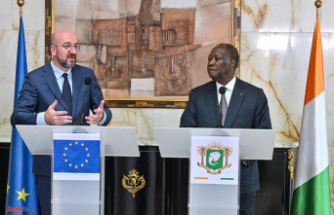A new poll shows that Halloween participation is on the rise, but it's still below pre-pandemic levels. However, an industry trade group claims that people who celebrate are driving record-breaking spooky spending.
According to Aneisha McMillan (spokeswoman for the trade group Halloween and Costume Association), candy, decorations, and costumes sales are up at most 25% over last year and are expected to reach a new high of between $10 and $11 billion.
She said, "People are getting Halloween spirit."
Although the pandemic remains a concern, trick-or-treating and other outdoor activities have been given the green light by Dr. Anthony Fauci (the government's top expert on infectious diseases) and Dr. Rochelle Walensky (director of the Centers for Disease Control and Prevention). Experts recommend that people keep hand sanitizers and masks on hand and avoid crowded or poorly ventilated areas.
Angela Montierth, Sandy, Utah, said that Justina, her 4-year-old daughter was "magical" to watch celebrate Halloween. The family did not do much in 2020 except put out candy for trick or treaters, so this fall, they are trying to make up the difference.
Montierth shared his experience at the trick-or-treat party at Discovery Gateway Children's Museum near Salt Lake City. "We did a Pumpkin Patch and we had a small Halloween get-together at home with other children." "At this stage they need to play with other children, and they need the socialization aspect."
The Associated Press-NORC Center for Public Affairs Research has released a new poll that found 35% of Americans intend to give out candy for Halloween. This is down from 42% pre-pandemic 2019, but still higher than the 25% mark in a separate NORC survey for 2020.
However, 16% of respondents said that they plan to take their children trick-or-treating this year, as opposed to 25% last year and 25% in 2019.
Rolando Cadillo, of Phoenix, is one of those who will not knock on doors again this year. His family includes a 15 and 4-year-old daughters as well as a son and daughter. They decided to have a safe Halloween at home last year and didn't give out candy. They are keeping the masks on but stocking sweets.
Cadillo's son will be Spider-Man, but he won't be trick-or-treating. He's still unsure if he should let his daughter go along with her friends.
Cadillo stated that they would stay home but will give candy to any children who knock at our door. It's better than last years. More people got vaccinated."
Nearly 191,000,000 Americans are fully vaccinated against COVID-19. That's 58% of the country's population. The United States is poised to expand its vaccination efforts to children between 5 and 11, but this will not happen until after Halloween, pending approval by the CDC.
Last year, Halloween was here when the number of cases rose to approximately 81,000 per day across the country. This was at the beginning of what turned out to be a deadly winter surge. Due to the ban on large crowds and fears that celebrations could spread the coronavirus, many parades, parties, and haunted houses had to be cancelled. Others continued, but with pandemic wrinkles, and sometimes a nod towards the nation's tendency to use fear as entertainment during times of turmoil.
Today, infections are in a decline in the United States. There are currently 73,000 new cases per hour, compared to 173,000 in mid September.
There are still concerns, particularly in rural areas where hospitals are struggling. After a 140% increase in cases, the Salt River Pima Maricopa Indian Community in Phoenix has also banned Halloween activities.
Many people will be happy to celebrate Halloween on a weekend in areas with lower infection rates.
Google search trends show that classic costumes are still a hot seller, with rabbits, witches, and dinosaurs dominating the top spot. McMillan stated that there are many contemporary outfits that were inspired by South Korean Netflix's hit series "Squid Game" or "WandaVision", as well as Marvel's smash hit series "Marvel". McMillan said that there are also some topical products, such as a couple costume with a vaccine or syringe.
However, the enthusiasm has led to some shortages in costumes due to the uncertainty of retailers placing orders and the supply-chain problems plaguing many areas of the economy.
"Many people are becoming really creative because they cannot find the right costumes. McMillan stated that they are creating group costumes or couples costumes so they can mix and match to create something unique.
There have been some trends shifts since last year. People are less inclined to choose superhero and first-responder costumes, and more people lean towards nostalgia and pop culture.
McMillan stated that "This holiday is the absolute favourite of the millennials, and they're notoriously nostalgic." "We've been cooped up so long. ... It's going to be the greatest celebration I have ever seen."












